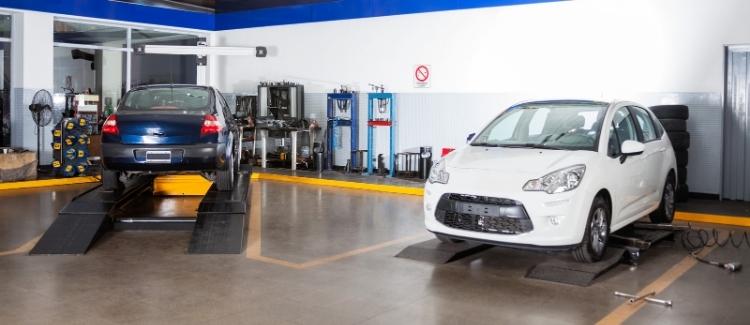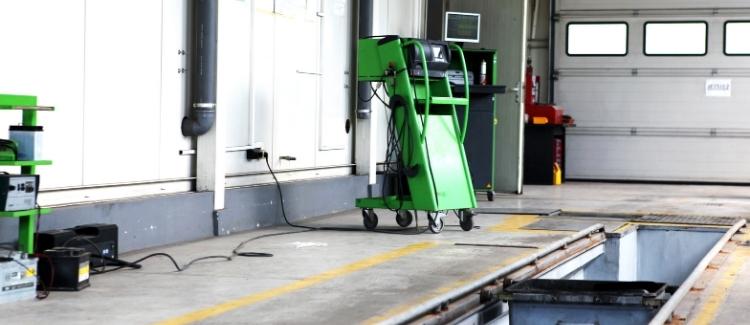Getting into a car accident is traumatic enough, but then in the aftermath you have to deal with tow trucks, insurance claims, temporary transportation, potential demerit points, and whether or not the car is a write off. It can all be a bit overwhelming.
Depending on the condition of your vehicle after the accident, it will either be repaired or replaced – it’s up to your insurance provider to decide. Have you ever had to write off a car before? If not, you’re lucky, but it doesn’t hurt to know how it works if it should ever happen.
When does my vehicle become a write-off?
Your insurance provider will determine whether your vehicle is worth repairing or not, but the general rule is this: when the estimated repair cost and salvage value of the damaged vehicle exceed the cash value of the vehicle pre-accident, it’s a write off.
It’s always good to be aware of the Kelley Blue Book value of your vehicle in these types of situations.
“If the value of the damage typically approaches 50 per cent of the value of the vehicle, the insurer may decide to write it off and say it’s a total loss.”
– Pete Karageorgos, Director of Consumer and Industry Relations with the Insurance Bureau of Canada
What does my collision insurance cover?
Collision insurance coverage does not cover damage to the contents of your vehicle, only the repair or replacement of it. If you’re in the habit of carrying expensive equipment in your trunk for work or business purposes, like video equipment or construction tools, then those should be insured through a business insurance policy.
Here are a few more key things to remember about your collision coverage:
- If you decide to have your vehicle repaired with after-market parts, you may have to cover the additional cost.
- You can get your vehicle repaired anywhere you want for the quoted repair cost, but the insurer will only guarantee the repair’s quality if you use one of the insurer’s preferred auto shops.
- If the vehicle cannot be repaired, your insurance provider may reimburse you the cash value of your car pre-accident—but remember that vehicles over 2 years old tend to be significantly depreciated.

My car was written off but the damages don’t seem that bad. Why didn’t they repair it?
Many Canadians are confused as per why they were handed a cheque to replace their vehicle instead of just repairing it. The answer is technology. There is more tech now than ever before in vehicles, which has turned simple repairs into complex sensor calibrations that require additional skills, tools, and time.
“We actually see more cars getting totalled than we have in the past because the cost to repair them is higher than it has been historically.”
– Bryant Vernon, Chief Claims Officer with Aviva Canada
This is why writing off a car is not always a great option—even if the accident report lists the damage below $2,000.
If your vehicle is an old clunker that doesn’t owe you anything and you ended up getting $1,000 – $2,000 for it, that’s great! Writing it off didn’t hurt your bank account much and you can put the funds toward the new replacement you were meaning to get anyway.
However, many new vehicles come with the kind of expensive electronics that require time and specialized tools to calibrate as part of the repair process. If your vehicle is too expensive to repair and to recalibrate compared to its current market value, then an insurer might write it off.
Frequently asked questions about writing off cars
Questions about writing off a car? You’ll find the answers here.
What if my accident was only minor and I want to repair the vehicle?
The cost to fix a fender bender is usually low enough that your insurance company will deem the vehicle worth repairing, in which case it will:
- Oversee the repairs at their preferred shop.
- Cover the cost of any accident-related repairs.
- Require you to pay additional costs if the parts replaced are better than they were pre-accident (i.e. if you had a rusty bumper and tailpipe and it is replaced with an all-new system).
If you want to repair the vehicle but the insurance company has deemed it a write-off, you’ll have to review the accident insurance claim with your insurance representative. Typically, when an insurance company won’t repair a vehicle, it is a safety issue. Some insurers will let you repair the vehicle and put it back on the policy, but they’ll still count it as a write-off. Most, if not all insurers won’t provide collision coverage or comprehensive coverage on vehicles that have been repaired after a write-off, either.
Food for thought!

What if my vehicle is brand new?
Check your policy: does it include a “limited waiver of depreciation” clause? If it does, and your vehicle is less than 2 years old, then your insurance provider will reimburse you the full purchase value.
What if I want to take my vehicle to a different repair shop?
If you have a trusted mechanic or shop you’d prefer to use, that’s completely fine. Just remember these tips before they barrel ahead and make the repairs:
- Insurers only guarantee repairs from their preferred auto shops. Keep that in mind before choosing another mechanic!
- Get a written estimate that includes parts and labour.
- Share the estimate with your insurance provider to ensure it is within the cost they are willing to pay.
- Sign the approved estimate with your mechanic.
- Manage the repairs and approve any additional recommendations your mechanic might make. Sometimes they suggest other upgrades while they’re working on it, such as replacing aged brakes—but those extras would come out of your pocket.
How does an insurance company determine the value of my vehicle?
The market value or actual cash value of your vehicle depends on the year, purchase price, condition, and mileage at the time of the accident. Beyond the vehicle itself, insurance providers will also have access to a used car valuation database known as the Canadian Automobile Red Book.
Regular maintenance of your vehicle can help improve the value if you were to find yourself in this situation, obviously—just another reason to keep your vehicle in good condition.
That’s the scoop on writing off cars. Stay informed and stay safe on the roads, folks!





